 27th April is Freedom Day in South Africa!
27th April is Freedom Day in South Africa!
It celebrates freedom and commemorates the first post-apartheid elections held on that day in 1994. They were the first national elections in South Africa in which the franchise did not depend upon race. It will always be a milestone in our country’s history. That day marked the end of a painful past. It also marked the beginning of a new era, a new South Africa.
Twenty years on, have we come any closer to Mandela’s vision of freedom for all? In order to sustain his vision, it is our government’s responsibility to address the challenges of housing, health, education, crime, unemployment and drugs. As individuals we need to learn to respect and be grateful for the freedom that others were willing to die for. We need to fight and stand up for our rights every day. We need to reflect on what’s been achieved over the past two decades as the country prepares to go to the polls again in a weeks time.
Freedom! What is freedom? What does it mean? It is the power to act, speak or think without any imposed restraint. Throughout the ages, people have had their freedom curtailed for one reason or another.
 My Grandfather, Patrick Campbell Young, was imprisoned in 1914. This is his “freedom” story.
My Grandfather, Patrick Campbell Young, was imprisoned in 1914. This is his “freedom” story.
“Among my most cherished souvenirs are an old African blanket and a German Mauser.”
“In 1914, during the South West Africa campaign, everyone in my regiment was arrested for refusing to join our own Colonel Maritz’s radical Afrikaner Nationalistic rebellion.
We were marched throughout the night and arrived at Nyders, the following morning. There, we were handed over to the Germans. After a short rest we moved on once more. Although tired and footsore we were kept on the move all day and most of night. The heat was intense and we had very little water. The mules upon which our guards were mounted just dropped from fatigue and thirst. The Germans mercifully shot them and joined the troops on foot. It gave us a tremendous amount of pleasure to see the Germans struggling along in the sand dressed in their top boots!
We eventually landed in prison camp at Franzfontein, which is a place surrounded entirely by desert. We were weak from semi-starvation so escape from here was impossible. Some months later, we were transferred to Otavifontein, where the country is fertile and more populated. We were better fed here and this change so improved our health and spirits that soon our lassitude wore off. Cricket and football became the order of the day, as is usually the case where healthy troops are gathered and have some leisure.
Under these better conditions, the idea of escape soon began to occupy our minds. For weeks, seven of us schemed and planned how we should effect this. It was quite an undertaking as we had neither compass nor a map of the country to guide us. We had hundreds of miles of unknown hostile country to traverse before reaching friendly territory. Our ages ranged between 17 and 21. The youngest was one of the originators of the idea to escape and it was largely owing to his unquenchable enthusiasm that we finally decided to go ahead and make the attempt.
We had no boots, so made them of rawhide. We laid in a supply of Mieliemeel bread. By judicious questioning of the more communicative guards, we discovered as far as possible – the lie of the country. Our preparations completed – there still remained the difficulty of getting our bundles, as well as ourselves, out of the camp! It was a daily fatigue, just before sunset to remove all refuse buckets and dump the contents in the bush some distance away.
This gave us the opportunity to escape.
On the arranged day, we all volunteered for that evening’s fatigue. We managed to ensure that one of the refuse buckets was kept clean and into this during the afternoon, we placed our packs and put the lid on. As the time for the fatigue drew nearer so our excitement grew. It seemed to our nervous imaginations, that each guard round the camp had a thousand eyes with which he was watching us. The bugle sounded at last and we fell in amongst others. When the order was given to “Fetch buckets”, what a scramble there was to ensure that we should procure the bucket containing our kit! We managed this without arousing suspicion and we passed through the gate with the fatigue party. The plan was to make our escape when we reached the thick bush, hoping that the guard would not see us. We would be some distance away before he realised that we were missing and summoned assistance.
When we had gone about half a mile to where the path took a sharp turn, we left our buckets, procured our kit and dashed into the bush. Having gone some distance, we slipped on our boots and set off at a fast run. It is remarkable that though none of us were athletes, we kept up this pace for hours. There’s nothing like excitement and the expectation of a possible bullet from behind to keep one going!
In spite of home-made boots and the thorny nature of the bush, many miles were covered before the next day dawned. Our idea was to travel at night and rest during the day so as to avoid being spotted. With the first streak of light, we selected a thick patch of bush in which to hide. We remained there all day, resting and eating from our meagre store of mealiebread.
The first day is unforgettable. Our nerves were incredibly on edge. Everything that cracked or bird that fluttered seemed to herald the coming of the whole German army. At last this long day ended and at dusk we started off again. The second night was uneventful and we covered considerable distance. But on the third night, misfortune befell us. Two of the party took the water bottles and went off to refill them at a farm a mile or two distant. They failed to return. As the hours passed so our anxiety increased. We risked the danger of lighting a fire in the hope of guiding them back. All our efforts were to no avail and after waiting many precious hours, we were reluctantly forced to proceed without them. Months later we heard that they had lost their way in the bush but were successful in eventually reaching safety.
We had now been travelling hard and very fast for three days and were footsore and weary. The loss of out two friends had considerably dampened our spirits. Travelling became more of a task. We decided to rest awhile during the night but found that when not travelling we became too chilled to sleep or even rest, so moved on.
We came across a railway track which we followed for some distance. Suddenly a group of huts confronted us and from one of these emerged an old man wrapped in a woollen blanket. The problem of a blanket for the midnight rest was now solved! I was the only one with any available cash so it fell to my lot to procure it. After considerable bargaining carried on in an unknown language and with much gesticulation, it was finally purchased for 10 marks.
The following nights we all slept under this one blanked during our resting period and what a boon it proved. For this reason, this worthless old blanket is of much value to me.
During the sixth night, while walking along a sandy track with long grass on either side, we were very nearly surprised by a German patrol. Only just in the nick of time, we threw ourselves down and rolled off the road into the grass. We lay watching and listening. This patrol proved to be the advance guard of a very large German column which took some hours to pass. We held council of war and decided to avoid roads in future. We kept to the bush and long grass where it was safer though slower travelling.
We surmised from the way this column was travelling that it was retreating and that our troops could not be far off. Our spirits rose considerably. No doubt this was a case of “The wish being father of thought”; nevertheless it gave us hope. So no longer footsore and weary, we trudged gaily on.
At last the sun set and eagerly we started off. We had been going but a short time when once again we heard troops passing on the road. But as there was no danger of our being seen or heard, we did not stop. All night long troops passed and we kept steadily on in the opposite direction. There were so many columns passing that just before dawn, we concluded they could not all be German, and that we should risk investigation. We crawled to within 50 yards of the road but owing to the darkness and the density of the bush we were no wiser. Two of us decided to go still nearer. We wriggled stealthily to within five yards of the road but even then we were not sure. We dared not risk exposing ourselves so lay still and waited fro someone to speak. Minutes passed and not a word was uttered. After what seemed years of silence, a trooper ventured the remark: “It’s bloody well time we halted!” These were the most blessed words we had heard for months. No language could be more typically British. This was a great moment! Throwing all discretion to the wind, we sprang from the grass suddenly and very nearly unseated some of their sleepy riders.
This led to more typically British language but we were soon forgiven when it was realised that we were escaped prisoners of war. There was much excitement. The column was halted and our friends called from their hiding place. The five of us were interviewed by the colonel who ordered us to ride on a wagon to the next camping place. We learnt that we had been over cautious, as all the troops which has passed us during the night were British. We found that we were many miles out of our reckoning. Bur “Fortune favours fools” and had guided us in the right direction. Camp was pitched at dawn. Here we were the centre of attention! Cigarettes were lavished on us and much coffee. That first cup of coffee with sugar in it, is a lasting memory. The colonel questioned us further and thought our information of such importance that he sent us to report to the commander-in-chief, General Louis Botha, who happened to be in the vicinity at the time. We were escorted to his camp and were taken to be interviewed.
It was a scene that remains indelibly imprinted on my mind. The orderly camp was ringed by transport wagons. In the centre stood the General’s private tented mule wagon, where he and his staff were congregated. Into this atmosphere of discipline and order, five escaped prisoners -unkept, bearded, in tattered clothing and raw hide boots – appeared. We attempted to march with soldierly bearing into the General’s presence. As we halted before him, the senior amongst us saluted. This was the final touch required to complete our comic appearance. The General burst into roars of laughter, both hands across his portly person which shook with unrestrained mirth. So spontaneous and infectious was his merriment, that all in the vicinity joined in. A few minutes later, utterly exhausted, the General said to his A.D.C.: “Bring my stoel, last ek sit. Ek kannie meer staan nie”. (“Bring my chair, I need to sit. I can’t carry on standing.”) Having seated himself, he addressed us. “En toe, kerels, wat is julle plan nou?” (“And so, my men, what is your plan now?”)
To which we answered that if we could be provided with a gun and horse each, we would like to accompany the troops. This pleased him very much. Only after this, did he ask for information of military importance. What was so impressive was the General’s accurate knowledge of the enemy’s movements and the nature of the country ahead. So much so that it seemed there was nothing unknown to him in the information we were able to give. Later we learned that in the next two or three days, our comfort should receive special attention.
This incident exemplifies those human qualities which made General Botha so beloved by all who served under him. Although at the time, matters of great importance and anxiety concerning the successful issue of his plans for the great drive northwards which finally ended the campaign so satisfactorily occupied his mind – he was able to enjoy the humour of this little episode and at the same time did not forget to show kindness to those in need.
The following day, the Quarter Master, having clothed and armed us, suggested that as we had no duties to perform, we should shoot Guinea Fowl of which there were large numbers in the surrounding bushes. While out hunting, two of us met up at a waterhole and sat talking awhile. Suddenly a German scout appeared quite close to us. The poor fellow was in a state of collapse owing to hunger and thirst and he surrendered to us without showing any fight.
Fate had played a strange trick indeed. We, who so lately had been prisoners, were now the captors and proudly we marched our prisoner into camp. I possessed myself of his rifle and my friend took his field glasses which by special favour the officer in command allowed us to keep.
Thus, I came by my second souvenir……”
 I smile as I put aside my Grandfather’s writing. I think back to our Freedom Day which came into being due to another prisoner finding his freedom. There is such wisdom and humility in Nelson Mandela’s words:
I smile as I put aside my Grandfather’s writing. I think back to our Freedom Day which came into being due to another prisoner finding his freedom. There is such wisdom and humility in Nelson Mandela’s words:
“As I walked out the door toward the gate that would lead to my freedom, I knew if I didn’t leave my bitterness and hatred behind, I’d still be in prison.”



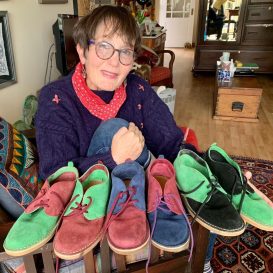



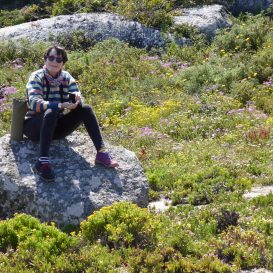

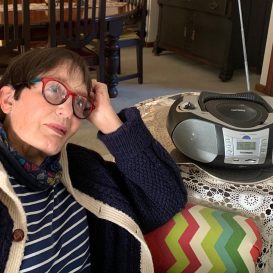

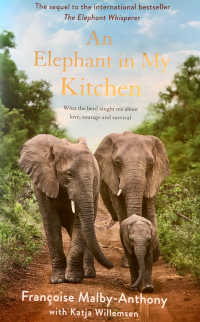

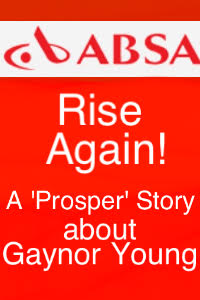

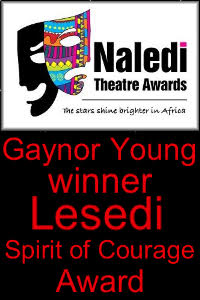



Hi Gaynor I stumbled onto your profile and eventually this post. ….. Thank you. …
Regards
Jan G Brink
I’m so glad that you “stumbled” onto my profile and then my blog, Jan! Here’s to our future of writing AND reading!
With a laugh I kiss your eyes
Gaynor
Loved reading this Gaynor. Thank you. Xxx
Thanks for reading this, my Judes. As you see, I got that “problem” sorted out!
With a soft smile I kiss your eyes
Gaynor
Inspiring, just like you. Thank you for ‘paying it forward’. X x x
Soft laugh. Thanks for reading it, Katya. My Mum bought out his article and it was a treat to “pay it forward!” He then left for France and was part of that trench warfare. He won the MC that was presented to him by King George.
He never wrote or spoke of that horrific experience to anyone.
Softly I kiss your eyes
Gaynor
Hi Gaynor love that story, history is amazing.
General Botha was my grandmothers uncle, I believe he was an amazing man.
Lots love
Was he really, Caroline! Well, the respect that my Grandad had for him was enormous.
With a smile I kiss your eyes
Gaynor
Gaynor, it is wonderful that you have this ‘journal’ of your Grandfathers’. It made such interesting reading and gives us younger generation an appreciation of what our forefather’s went through. This is something we need to keep reminding ourselves of.
What a wonderful country this can be, with more Wisdom and Humility from every citizen.
Thank you, thank you.
Yes, Romary, it is wonderful that I have this “journal”. Grandad then went and joined the forces fighting in France and won the MC, presented to him by King George. He never spoke about that horrific time though!
Thank ŷou for continuing to read my blog…..
With a smile I kiss your eyes
Gaynor
Morning friend. Truly inspirational once again. My late husband was a “guest of the German government 1942-45 so I could appreciate your fathers words. Blessings!
Margo, what do you mean “a guest”? 1942 -1945. Was he imprisoned there? Or was he German? Please explain?
Softly I kiss your eyes
Gaynor
Well written love as we say “”you did good” it’s a great story and one that his great grandchildren will now be able to read. Amazing to think it all took place 100 years ago.Well done.
Yeah, 100 years ago! You’re right, Mums, now his great-grandchildren will be able to read about him. Thank you for all the info!
Gently I kiss your eyes
Gaynor
Comments are closed.